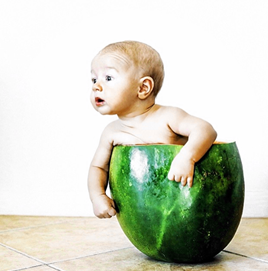
Are you planning a vegan diet throughout your pregnancy? Let me remind you of the key nutrients vegan mothers-to-be need to focus on for a healthy pregnancy.
Planning for a baby? Or perhaps you’ve already got the good news and are now planning some changes into your routine? One thing that you should be planning for are the changes in your nutritional requirements and how you can meet them from your diet. Although vegan diets can be extremely nutritious, you will need some supplementation to help you meet your increased pregnancy nutritional needs. Let’s discuss three key nutrients needed for pregnancy:
Iron
Iron is a key nutrient needed to form the red blood cells for you and your baby. It helps carry oxygen in your blood and is needed for your baby to grow. Good sources of dietary iron are legumes, (e.g. beans, peas, lentils) dark green vegetables, dried fruits, nuts, fortified soy milks, breakfast cereals and wholemeal breads. Vitamin C will help its absorption, so combine it with citrus fruit, berries, juice or tomato. As your iron requirements almost double during pregnancy, you will require supplements to help you meet your needs.
Calcium
Calcium is needed for the development of your baby’s bones and teeth. If you don’t have enough calcium in your diet, you will sacrifice your stores of calcium to give your baby what he or she needs. This means that your bones and teeth become weak with a greater chance of fracture. Dairy is one of the main sources of calcium, but without it in your diet it is important to obtain calcium from products such as green vegetables, tofu, almonds, sesame seeds and tahini. Consider making calcium fortified soy products a staple in your diet to meet calcium requirements.
Vitamin B12
Vitamin B12 helps to unlock energy and support red blood cells so insufficient amounts may cause you and your baby to develop anaemia-symptoms such as fatigue, dizziness or a rapid heart beat. Most Vitamin B12 is actually found in animal products so suffice to say, that your intake will naturally be limited. You should be able to obtain small amounts of vitamin B12 from food fermented by micro-organisms (soy sauce, miso, tempeh), manure-grown mushrooms, spirulina and yeast, but this may not be sufficient to meet your pregnancy requirements. Look for Vitamin B12 fortified products such as breakfast cereals and soy milks and ensure you take a meat-free Vitamin B12 supplement.
As with any pregnancy, your vegan diet should as always focus on quality over quantity. Talk to an Accredited Practising Dietitian for tailored advice to help you plan nutritious meals and snacks throughout your pregnancy.
